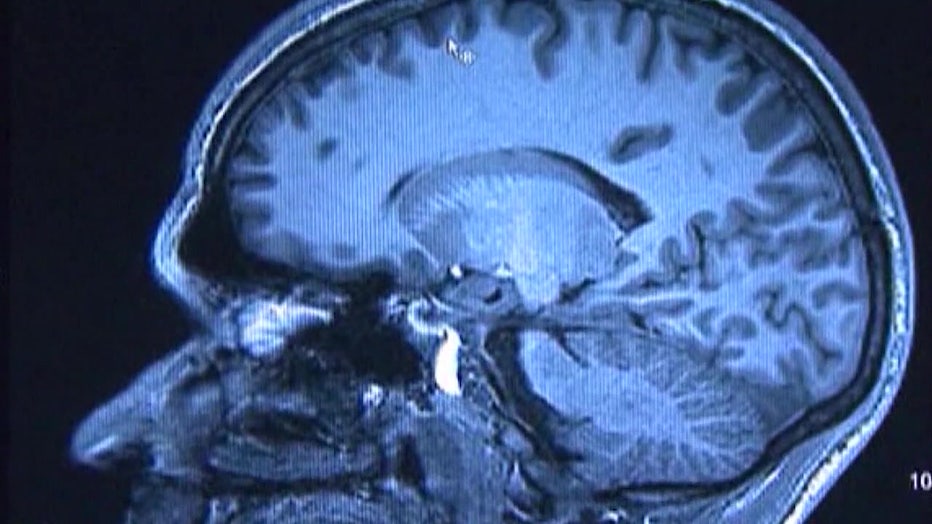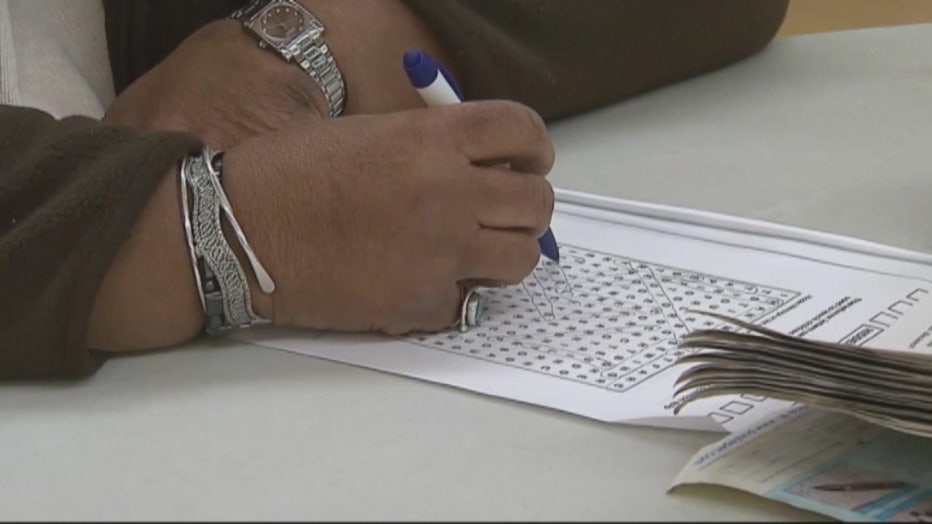New blood test could screen for Alzheimer's before onset of symptoms
TAMPA, Fla. - A blood test could soon be used to identify a type of protein that is linked to Alzheimer's disease before symptoms arise with 97% accuracy, a new study shows.
The study involves testing blood for biomarkers that could build up in the brain. The testing could make it much easier and more affordable, as the only option now is a brain scan or spinal tap, both of which are inaccessible and costly.

Nearly seven million people in the U.S. are currently living with Alzheimer's disease, and experts hope this can help families prepare and educate on treatments.
HEALTH: Dementia among younger people is linked to 15 factors, major study reveals
FOX 13 spoke with a neurologist and Alzheimer's researcher, who has been studying the disease for decades in the Tampa Bay area.
"I think the important thing this test will do is raise awareness of the disease," Dr. Susan Steen said. "This is kind of a tsunami that’s already happening, and most people know somebody who has Alzheimer’s disease."
Dr. Steen says that although results should be taken with a "grain of salt," it will definitely benefit people who take steps to then prolong their health.
"Preventive therapy and pushing off brain deterioration is extremely important and there is a lifestyle that promotes that, including controlling blood pressure, blood sugar, not smoking, eating a brain-healthy diet and exercise," Dr. Steen said. "I think the question is, if someone gets this test, what are they going to do with this information?"
READ: Pets can help slow dementia progress among those over age 50 who live alone, study says
She said there are effective medications out there now too: "There is no cure yet, but that doesn’t mean there isn’t going to be a cure. There’s been two effective treatments so far – one already approved by FDA."

A memory care facility in Tampa, The Estate in Hyde Park, said most of their patients arrive for help when it is too late – and the Alzheimer’s has already deteriorated into dementia. Their facility uses games, learning, memory and exercise to stimulate the brain of someone with onset symptoms.
"You can slow it down by stimulation, the earlier the diagnosis you have, the more you can work with that person. The brain works like anything else in our body. If you don’t use it, you lose it," Nia Ray, the facility’s memory care director told FOX 13. "Unfortunately, it’s always been that we are kind of in this situation with no pre-warning, so that testing is going to be great."
The blood test is currently available for research use only, but it is expected to be available for clinical use soon.

